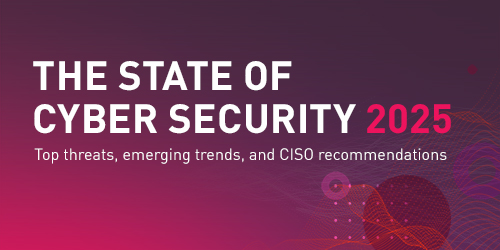
Celebrating World Youth Skills Day: The Vital Role of Cyber Security in Early Career Development
Check Point Software Technologies, a leading AI-powered, cloud-delivered cyber security platform provider, advocates the importance of equipping today’s youth with cyber security skills in emerging technologies like AI, ML, IoT and even Quantum Computing. This will ensure future job roles in cyber security will have the relevant skills and knowledge, prepared to handle and prevent tomorrow’s increasingly sophisticated cyber attacks.
World Youth Skills Day is celebrated on July 15th to recognize the value of equipping young people with the tools they need for employment and entrepreneurship, as well as sustaining development in the future. Among the myriad of skills shaping the future, cyber security stands out as a critical area for both individual career aspirations and collective digital safety. In a time where technology touches every aspect of our lives, understanding and mastering cyber security is not just advantageous, but essential.
Digital transformation has delivered better connectivity, more convenience, and greater opportunities for younger people. As older generations are currently progressing towards retirement, it will be the digitally native younger workforce that has to master new technologies such as Artificial Intelligence (AI) and blockchain as they become a permanent fixture in the corporate world. That also means understanding how these new processes introduce vulnerabilities, and what responsibility they have as individuals to protect them. Cyber threats, ranging from data breaches to ransomware attacks, are escalating in volume and sophistication. According to threat intelligence from Check Point Software Technologies, an average organization has faced more than 1,760 attacks weekly over the last six months. As we spend more personal and professional time online, protecting sensitive information becomes paramount.
It is not just out of fear that we should encourage young people to understand the merits of cyber security. The industry is booming and ripe with career opportunities that cater for every individual no matter their gender, ethnicity or circumstances. The key here is to empower the next generation with the skills they need to guard against cyber threats that we don’t even know exist yet.
Demand for future-proofed skills
The world is changing at a rapid pace. The first Industrial Revolution spanned more than 80 years and yet Industry 4.0, which began in the 21st century, has brought about more technological advancements than any other era. Previously, employees had to understand rudimentary digital processes such as spreadsheets and emails. The workforce of tomorrow will also need to master sophisticated systems such as AI, Blockchain, Quantum Computing and Machine Learning. These will become the norm and it is important that younger generations know how they operate and therefore how they can be exploited.
Career Aspirations in Cyber Security
The demand for cyber security professionals is soaring. According to the World Economic Forum (WEF) there is a global shortage or more than four million trained workers, and the cyber security market worldwide is projected to grow by 7.92% between 2024-2029. This growth is driven by the increasing reliance on digital infrastructure and the corresponding need to safeguard it against cyber threats.
A career in cyber security comes in many forms and requires different skillsets. Depending on the level of complexity and qualifications, options include security analysts, engineers, penetration testers, incident responders or ethical hackers. Now, there are a range of entirely new career paths built specifically around technologies such as AI, IoT and 5G. Positions like Cyber Risk IoT Manager and Cyber Security AI Researcher have introduced an entirely different skillset where the employee needs to understand how algorithms and patterns of behavior influence decisions that could create security gaps.
Attracting new recruits into these roles can be challenging when using more traditional educational routes. The new skills they need require a rethink in how they are taught. For example, the use of Virtual Reality (VR) or gamification could give them a practical hands-on view on the impact of a cyberattack, and what measures are taken to defend against them. Similarly, a more interactive exercise such as a Hackathon, which brings everyone together to collaborate on software programming, may generate more interest. For example, Check Point SecureAcademy offers free learning content such as HackerPoint simulation courses to help increase students’ knowledge in cyber security and to entice their interest, to make learning cyber security something more fun (through exciting ‘game-like’ qualities, rather than solely learning from books.
Empowering the Next Generation
It is crucial that we recognize how equipping young people with cyber security skills empowers them to navigate and ultimately shape the digital world safely and confidently. That means lowering the barriers to entry into the workforce for young professionals.
Educational institutions, governments, and industry leaders must collaborate to integrate cyber security education into curricula and provide accessible training opportunities for all. For example, companies like Check Point work with academic institutions to provide students with resources and certifications that prime them for the job market after graduation. They also offer summer programs while studying and entry-level positions for those starting a career in the industry. There may also be options for apprenticeships or internships that allow you to earn while you learn, along with initiatives such as coding bootcamps, cyber security workshops, and online courses.
By fostering a culture of cyber security awareness and competence, we not only prepare young people for fulfilling careers but also fortify our collective digital defenses. We can lay the foundation for a secure and prosperous future, driven by a new generation of cyber-aware individuals.
As we celebrate World Youth Skills Day, it is imperative to focus on empowering our young generation with the skills needed to navigate and secure the digital future. Cyber security is no longer just a technical discipline; it is a critical enabler of trust and innovation in our increasingly connected world. By integrating advanced cyber security education into our curricula and providing accessible training opportunities leveraging updated means of learning eg. via gamification or hackathons, we can equip our youth with the capabilities to protect against emerging threats. But it’s not enough to simply build skills—they are the architects of our digital future, and with the right mindset, they can drive transformative change. We need to challenge them to think beyond traditional security measures and innovate new solutions that anticipate and counteract cyber threats before they arise. By fostering a culture of cybersecurity innovation and proactive defense, we ensure that our young people are not only ready for the challenges of today but are also empowered to create a safer, more secure digital world.









